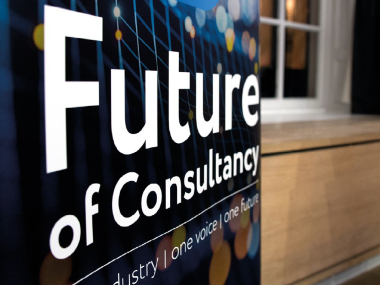The new chair of the Association for Consultancy and Engineering is Paul Reilly, managing director of Peter Brett Associates (now part of Stantec). As he prepared to take the helm at ACE, we sat him down to answer a few questions.
What are your priorities as you prefer to take the chair at ACE?
ACE represents and supports around 60,000 engineering and consultancy professionals across all regions of the UK, who work for large international companies and smaller firms, spanning all ages from apprentices to seasoned professionals. It is important that ACE listens to all parts of its membership, hears their views about the challenges that lie ahead and shares their ambitions with our wider stakeholders.
We have an ambitious plan to challenge our industry to broaden our diversity. By welcoming those with different skills and experiences we give more people the opportunity to participate in the delivery of new infrastructure, connecting our communities in new and innovative ways to increase resiliency and create sustainable places that reduce embodied and operational carbon, thereby transforming the quality of life for people in the UK.
How do you view the state of engineering consultancy currently?
Year on year we see our margins fall and we need to work even harder to create and demonstrate more value for our clients through our projects - embracing fresh thinking along the way. We are already reaping the benefits of digital working to reduce cost, time and risk for our clients and we need to keep pushing the envelope. As consultants, we always bear future generations in mind when advising our clients, but we must continue to improve the ways we help our clients articulate the economic and social value their projects will deliver in the years to come.
How will ACE’s Future of Consultancy campaign feed into your term as chair?
The Future of Consultancy is an exciting framework for engaging all stakeholders in our industry. Working more closely with the major contractors, government and clients to practically deliver lasting benefits, and challenging ourselves to evaluate the skills we need for the future are just two of the areas I plan to be closely involved with. We have an incredible depth of skill throughout our industry and I think there is more we can be doing to engage the broader supply chain in shaping our future.
You say you want to do more to help ACE’s SME members. How will you go about this?
We already have groups actively working to promote the voice of the small and medium sized firms who form the majority of our members. I will start by listening carefully to the membership, spend time with the regional groups, identify more routes for engagement and work with the excellent corporate team at the ACE to put in place additional tangible benefits for membership.
Is the voice of the consultancy and engineering sector heard loud enough with opinion formers? What more can ACE do to increase the sector’s profile?
I think that Infrastructure Intelligence has become highly influential within government and across the industry. Where we haven’t done enough, as individual members or as an industry body, is to create a compelling case which helps the general public understand the work we do with our clients. Increasingly, and rightly so, the voice of the community is looking for net zero outcomes and we can help deliver that. In our work on transport, power, water and buildings we will be able to make that case, but we need to ensure we are wrapping the important broader social benefits into the story we tell at the same time.

What do you think you can bring to the role of chair?
The ACE is a very collaborative organisation with a strong ethical foundation and a desire for excellence in everything it does. I will support it in any way I can and am eager to encourage the principles that have made it so strong over the past 100 years.
What do you see as they key issues facing ACE members currently?
We cannot be complacent. The scale of the UK infrastructure and development market is going to attract attention from new competitors who will bring different business models, apply technology differently, offer to take risk or control data disruptively, and potentially bring some financial power. As consultants and designers, we have the commercial creativity and client insight to combat these challenges. We have a great track record in the UK of being proactive in overcoming obstacles and I am sure we will continue to do so.
How optimistic are you about the future and why?
We are in a great place. The future is in our hands. The younger consultants and designers coming into our industry now are incredible. They are smart, tech-savvy, ambitious and infused with a strong social purpose. We must ensure we are creating an environment in which they can thrive. We have plenty of work ahead of us in meeting the challenges the UK faces in housing, infrastructure, clean water, clean air, developing smarter cities and transport systems and of course clean energy. What could be more exciting?
What is the one thing you would change about the industry if you could?
The mental health issues faced by our industry. Mental health issues at work typically emerge from poor relationships. We could all be more emotionally tuned in to the needs of our colleagues. The stress of time-critical accuracy-driven project working, the challenges of our often-fragmented approach and the constant financial pressures all weigh down on us as we try our best in a complex environment. If we had recognised and addressed these issues 20 years ago, embracing much of the thinking in the Future of Consultancy plan, and worked harder to push emotional intelligence as an important part of professional development, perhaps we would have fewer challenges across our industry today.

